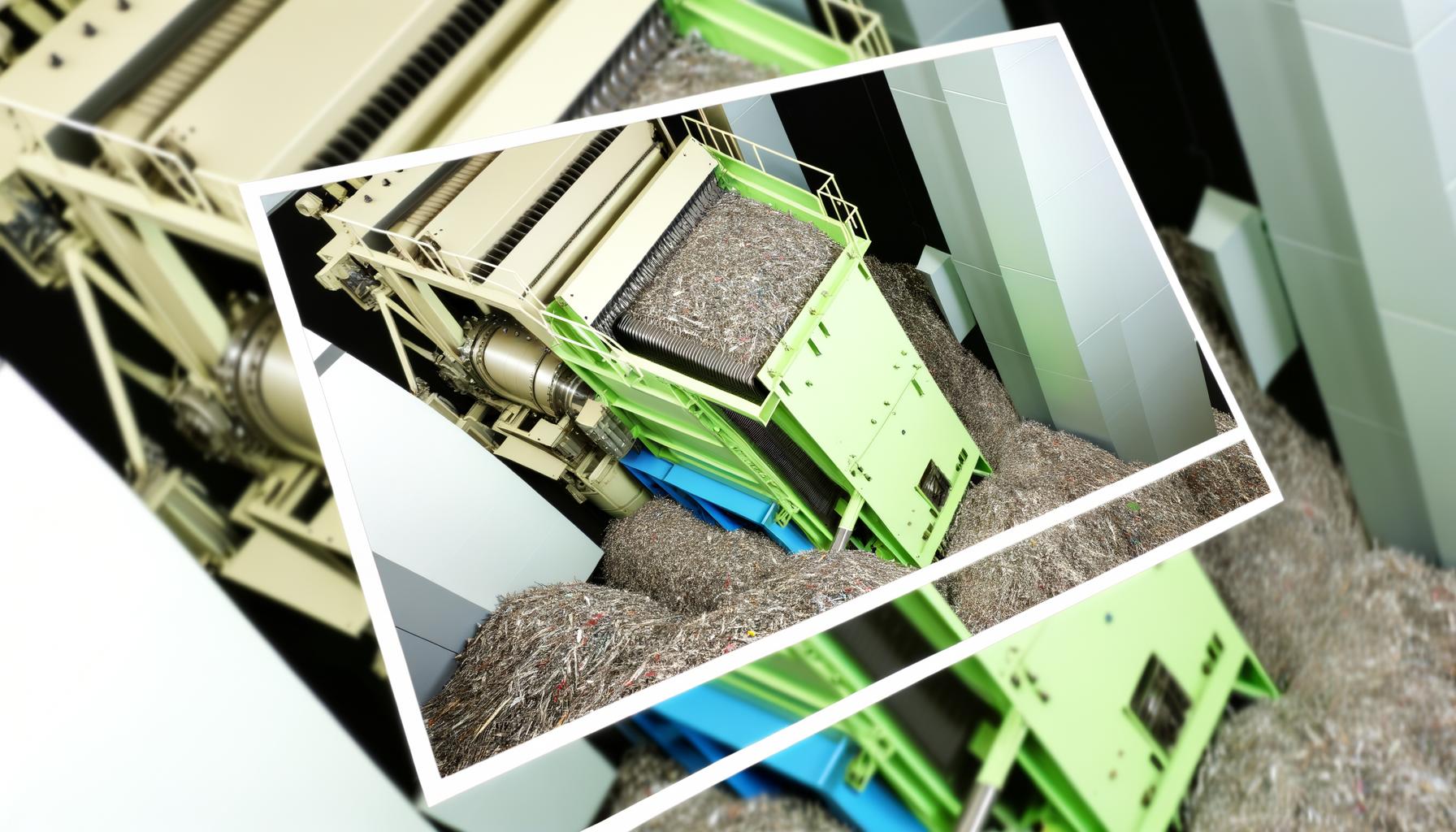In an era where data breaches are not just possibilities but regular headlines, professional data destruction services are the silent guardians of a company’s most sensitive information. From customer details to financial records, businesses of all sizes generate volumes of confidential data that-if compromised-could spell disaster. As such, understanding and implementing rigorous data security measures have become a critical business imperative.
The statistics on data breaches serve as harrowing reminders of their impact on organizations. According to reports, the average cost of a data breach can run into millions of dollars, not accounting for the erosion of customer trust and potential legal ramifications that follow. With the relentless pace at which digital threats evolve, businesses are in an arms race against cybercriminals and cannot afford lax security protocols.
This landscape marks an inevitable necessity for robust data protection strategies-a key component being secure disposal and destruction of redundant or outdated data. Whereas physical assets can be locked away or monitored, digital information presents challenges unique to our interconnected world.
The question then arises: How does one ensure complete obliteration of digital footprints to prevent unauthorized access? In addressing this concern, businesses must grapple with various aspects including the relevance, risks involved, methods available for secure eradication, compliance obligations, and determining the most effective approach for enlisting professional help in guarding their informational fortresses.
Understanding Data Destruction
Data security is a crucial consideration for businesses in today’s digital landscape. However, the aspect of data destruction-a critical component of a comprehensive data protection strategy-is frequently overlooked or misunderstood.
To begin with, data destruction is the process by which information is permanently erased or destroyed so that it can never be recovered or reconstructed. The importance of this process cannot be understated; it protects sensitive information from falling into the wrong hands when old storage devices are discarded or repurposed.
The confusion between data deletion and actual data destruction must be clarified to understand why proper disposal methods are essential. Data deletion may remove access to files within an operating system, but does not completely erase the data from the storage medium. Recovery tools and techniques can still retrieve deleted files, posing significant risks to business confidentiality and compliance efforts. In contrast, true data destruction ensures the complete obliteration of information, making any recovery attempt impossible.
Businesses must pay careful attention to a variety of data types that require secure destruction, both in digital form-such as on hard drives, CDs, USBs-and physical form-including paperwork and printouts containing confidential or proprietary information. It’s imperative for organizations to understand that every piece of stored data has the potential to become a liability if not disposed of properly.
| Type of Data | Destruction Method |
|---|---|
| Hard Drives (Digital) | Shredding/Degaussing |
| Paper Records (Physical) | Shredding/Incineration |
| USB Flash Drives (Digital) | Shredding/Pulverizing |
In recognizing various forms of vulnerable data and differentiating between deletion and true destruction, we reinforce the foundation upon which sound business practices are built: risk mitigation through secure management and disposal methods. Professional data destruction services play an instrumental role in providing these critical solutions while ensuring efficiency and regulatory compliance.
It remains clear that any company aiming to protect its interests must prioritize proper approaches to data security-specifically through fail-safe measures such as professional data destruction services-to preserve the integrity and privacy required for ongoing operations and success in today’s increasingly connected economy.
The Risks of Inadequate Data Disposal Procedures
When it comes to data security, the focus is often on protecting data from unauthorized access. However, the manner in which businesses dispose of their data can be just as critical. Inadequate data disposal processes pose significant risks that can leave an organization vulnerable to a myriad of problems.
Common Misconceptions and Mistakes
One prevalent misconception is that simply deleting files or formatting drives is sufficient to remove sensitive information permanently. Unfortunately, this is not the case; skilled individuals can often recover deleted data with readily available software tools. Businesses also make the mistake of overlooking physical documents when considering their data destruction policies. Materials such as printed reports, drafts, and notes can contain confidential information that are just as valuable to a corporate spy or a cybercriminal as digital files are.
Another error companies often commit is neglecting to account for all types of media that store data. This includes not only hard drives and USB sticks but also photocopier and printer caches, legacy storage media like CDs and tapes, and even mobile devices. Failing to recognize these as potential sources of sensitive information leakage can lead to incomplete data destruction practices.
Consequences of Improper Data Destruction
The consequences of not adequately destroying data can be severe. Financial losses from legal penalties, compensation claims, and remediation efforts after a breach can cripple an organization’s finances. For example, companies could face hefty fines for failing to comply with regulations such as GDPR that mandate proper handling and destruction of personal data.
Additionally, inadequate disposal procedures have far-reaching implications regarding an organization’s reputation. Trust is hard-earned and easily lost; if customers learn that a company has been irresponsible with their personal information due to shoddy disposal methods, they may take their business elsewhere. Similarly, leaked intellectual property due to improper disposal could give competitors an unfair advantage.
Real-World Examples
The risks are not just theoretical; there have been recorded instances where companies suffered considerable setbacks because they neglected proper disposal protocols. The 2017 incident involving an American healthcare provider serves as a cautionary tale: they settled a class-action lawsuit for 115 million dollars after failing to wipe servers containing patient records before selling them.

In another instance, financial service companies have faced penalties from regulators owing to discarded documents containing client information found in dumpsters-showing how physical documents remain a vector for breaches alongside digital ones.
Such real-world events highlight why organizations are increasingly relying on professional data destruction services-a practice that not only mitigates these risks but also aligns with compliance mandates demanding secure disposal of both digital assets and physical media containing sensitive data.
Professional Data Destruction Services
For businesses navigating the complexities of the digital age, ensuring that confidential information is irretrievably destroyed when it’s no longer needed becomes paramount. Professional data destruction services are designed to address this critical need with precision and reliability. These services go beyond merely deleting files or formatting drives; they employ rigorous methods to ensure that data cannot be recovered, thus averting potential security breaches.
Professional data destruction services utilize a variety of techniques based on the type of media being destroyed and the level of sensitivity of the information. Some commonly used methods include:
- Shredding: Physical records, hard drives, and other storage devices are mechanically shredded into tiny fragments.
- Degaussing: Strong magnetic fields erase data from magnetic media such as tapes and hard disk drives by disrupting their magnetic alignment.
- Incineration: Data-bearing items are incinerated in a controlled environment at high temperatures, ensuring complete destruction.
- Software-based methods: Data is securely overwritten multiple times using specialized software to prevent any chance of recovery.
These processes not only assure that sensitive information doesn’t fall into the wrong hands but also support compliance with legal and regulatory requirements. Laws such as the Health Insurance Portability and Accountability Act (HIPAA) in healthcare, the General Data Protection Regulation (GDPR) in Europe, and various state-specific laws in the U.S. mandate strict guidelines for handling and disposing of personal information.
Failure to comply can lead to hefty fines and penalties. By enlisting professional data destruction services that understand these regulations intimately, companies can ensure they meet these critical obligations.
Another pivotal advantage offered by professional data destruction services is accountability. These companies typically provide certificates of destruction which confirm that your business’s sensitive data has been disposed of securely and in accordance with best practices.
Furthermore, many providers facilitate audit trails that log each step in the destruction process-offering transparent evidence should your company ever require it for legal or regulatory scrutiny.
Choosing a certified service provider capable of disintegrating all categories of sensitive data serves not just as an act towards securing business assets but further endorses corporate responsibility towards privacy protection-an investment whose value far exceeds its cost when considering potential reputational harm stemming from a potential breach due to inadequate data disposal methods.
Integrating professional data destruction into your company’s policy isn’t just about risk management-it also sends a clear message about your business’s commitment to privacy protection. This level of dedication helps foster trust among customers, partners, and employees alike; it assures them that their personal information is treated with utmost respect even after its intended purpose has been served.
How Professional Data Destruction Services Safeguard Your Business
Enhanced Security Measures
Professional data destruction services not only dispose of your sensitive data but do so with meticulous attention to safeguard your information throughout the entire process. Data breaches are not solely a consequence of cyber-attacks; they can also occur when information improperly disposed of is retrieved by unauthorized individuals.
Professionals in the field use methods that are virtually impossible to reverse, such as advanced shredding techniques that reduce documents and drives to unrecoverable bits, degaussing which erases magnetic fields from storage media, and incineration which combusts paper or hardware leaving only ashes. By leveraging these sophisticated techniques, professional services ensure that even the most determined data thieves are thwarted.
Unlike simple deletion or formatting-which may leave traces of information that can be recovered with the right software-professional data destruction guarantees total data obliteration. This level of security is particularly important for businesses handling highly sensitive client information, trade secrets, or regulated industry data. Firms specializing in professional data destruction services stay abreast of evolving threats and continuously improve their methods to counteract any new vulnerabilities, providing an essential layer of defense in a comprehensive data protection strategy.
Certificates of Destruction and Audit Trails
One significant benefit offered by professional data destruction services is the provision of certificates of destruction upon completion. These certificates serve as tangible proof that all data has been destroyed in compliance with legal and regulatory standards. The presence of an audit trail further strengthens a business’s accountability and transparency efforts; it details how and when each piece of media was destroyed, giving businesses records they can rely upon if ever questioned by auditors or regulatory bodies.
Audit trails are particularly valuable for businesses that must adhere to strict regulations like HIPAA for healthcare information, FERPA for educational records, or GDPR for EU personal data privacy. Compliance requires not just following proper procedures but also documenting actions taken-a process made seamless with a reliable professional service partner. With such comprehensive documentation in place, companies can better withstand legal scrutiny while reassuring clients and partners about their commitment to confidentiality and ethical practices.

A Crucial Component in a Thorough Data Security Framework
Integrating professional data destruction into a business’s overall security plan elevates its defense against potential leaks at every end-of-lifecycle phase for devices and documents. This integration helps create an all-encompassing approach toward protecting proprietary materials throughout their existence-from inception to final disposal.
Employing a dedicated service to manage this specific part means regular schedules can be established for destroying outdated files or decommissioned equipment without overwhelming internal resources. Moreover, this routine ensures no critical asset gets overlooked due to manual error or oversight-a common risk in self-managed scenarios where staff may lack specialized knowledge about what constitutes sensitive material needing secure elimination.
Equally important is the role these services play after substantial IT refreshes or office cleanouts where large volumes of redundant material may suddenly surface requiring discreet eradication at scale-an undertaking expertly handled by providers well-equipped with heavy-duty infrastructure capable efficiently managing mass disposals securely and responsibly.
In essence, enlisting professional data destruction services forms a protective barrier around the lifeblood of many businesses: their gathered intelligence and records. As enterprises continue to digitize more aspects of operations, partnering with experts who specialize in keeping end-of-lifecycle data secure remains an indispensable measure against a landscape fraught with increasingly sophisticated threat actors seeking any opportunity to exploit vulnerabilities.
Choosing the Right Professional Data Destruction Service for Your Business
When the future of your business hinges on how securely you handle data, choosing the right professional data destruction service becomes crucial. It’s about more than just disposing of information; it’s about safeguarding trade secrets, customer details, and ensuring compliance with stringent regulations. To start, look for providers that carry recognized certifications in the industry.
These credentials often indicate that a company adheres to best practices and employs advanced destruction methods. Standards such as the National Association for Information Destruction (NAID) AAA certification offer reassurance that your chosen vendor operates under high-quality security procedures.
In addition to certifications, transparency in the data destruction process is essential. Seek out services that document the entire chain of custody from pick-up through to final destruction. A reliable provider should allow you to witness the destruction process either in person or via video link, ensuring your peace of mind.
Inquire about their end-of-life data handling policies. This includes not only the physical or digital destruction but also how they dispose of remnants sustainably. Environmental stewardship is an important consideration; therefore, opting for services that have eco-friendly practices demonstrates corporate responsibility and goodwill.
Lastly, set up a dialogue with potential data destruction providers to gauge their expertise against your specific needs. Key questions can pertain to capacity (whether they can handle large volumes), speed (how quickly they can complete a job), confidentiality agreements for staff, as well as what forms of verification they provide post-destruction – like certificates confirming legal compliance and a detailed audit trail for your records.
By carefully vetting each prospective service and considering these critical factors; certifications, transparency in processes, environmental considerations, and ability to match specific needs – you lay down a solid foundation within your overarching data security policy that aligns with professional data destruction services.
Conclusion
Data security is a critical aspect of safeguarding a business’s sensitive information. In today’s digital landscape, where data breaches are not only common but can also be devastating to a company’s reputation and financial health, building a culture that prioritizes data protection is no longer optional-it’s essential. Establishing such a culture goes beyond the adoption of technologies and services; it involves cultivating awareness and responsibility at all levels of an organization.
The importance of creating a company-wide appreciation for data security cannot be understated. Training employees to recognize the significance of protecting data and informing them about how breaches can occur are fundamental components of establishing this culture.
Organizations should foster an environment where employees understand their role in data security and feel equipped to take proactive measures in preventing data-related risks. This includes being vigilant about how they manage both digital and physical documents that contain confidential information, as well as understanding the protocols for when this information needs to be securely destroyed.
Lastly, integrating professional data destruction services into the heart of your business’s approach to data management should be seen not just as an additional step but as an integral part of your overall strategy for preventing breaches. Professional services ensure that once it’s time for data to be destroyed, it’s done so thoroughly and in compliance with relevant regulations.
The peace of mind brought by these services fortifies the trust within your organization as well as the trust bestowed by clients, partners, and stakeholders in your commitment to maintaining stringent levels of confidentiality.
Implementing such measures requires ongoing effort – a continuous loop of evaluation, feedback, training, and improvement – but doing so undoubtedly reinforces an organization’s dedication towards superior standards in operational integrity and customer trust.
| Component | Role in Data Security Culture |
|---|---|
| Employee Awareness | Fostering understanding of potential risks involved in handling company data. |
| Professional Data Destruction Services | Ensuring secure disposal of sensitive information compliant with legal regulations. |
| Ongoing Training | Keeping staff updated on best practices related to security protocols. |
| Culture Encouragement | Ingraining responsible behavior pertaining to data handling within corporate ethos. |
Remember that sustaining a milieu dedicated to robust privacy standards is key to building and retaining confidence amongst all parties engaged with your enterprise – making the investment into professional services for handling end-of-life-cycle data ever more worthwhile.

Call-to-Action (CTA)
As we’ve explored the multifaceted aspects of data security, it’s clear that implementing a culture of vigilance and responsibility within your business is imperative. However, understanding the need for robust data protection strategies is only half the battle; taking decisive action to safeguard your company’s sensitive information is crucial.
We urge you to evaluate your current data destruction practices thoroughly. Are they comprehensive enough? Do they comply with legal regulations? Could there be gaps in your procedures that might expose you to potential breaches? These are critical questions that demand honest answers. If you find any aspect wanting, or if you’re not completely confident in your methods, seeking professional assistance is not just an option-it should be considered essential.
Delve into the benefits of professional data destruction services for personalized advice tailored to your business needs. It’s an investment into the future-proofing of your business’s proprietary and customer data against unauthorized access and exploitation. With their experience and expertise, professionals can guarantee the complete destruction of all types of sensitive data, in accordance with industry standards and regulations.
Don’t let another moment pass where your business’s indispensable data could be at risk due to inadequate destruction methods. Protect your enterprise’s integrity and reputation before it’s challenged by a preventable mishap. Contact a reliable professional data destruction service provider today; start by exploring their credentials, methodologies, compliance to regulations, and client testimonials to ensure they align with your specific requirements.
Remember, proactive steps today can preempt crises tomorrow-securing not just bits and bytes but also trust and tranquility for yourself, your stakeholders, and your customers.
Frequently Asked Questions
What Is Data Destruction Services?
Data destruction services are professional services that ensure the complete and secure elimination of data from storage devices like hard drives, SSDs, CDs, USBs, and other electronic media. These services use a variety of methods to render the information on these devices unrecoverable, protecting sensitive data from unauthorized access or breaches after the device is discarded or repurposed.
Who Is Responsible for the Destruction of Data?
The responsibility for data destruction typically falls upon the entity that owns or controls the possession of the data. This could be an individual in case of personal data, or it may be an organization’s IT department or a designated officer responsible for managing data security and compliance.
In many cases, companies outsource this task to certified data destruction specialists to ensure adherence to legal and regulatory requirements.
How Do I Get a Data Destruction Certificate?
To obtain a data destruction certificate, one must engage the services of a certified data destruction provider who performs the service according to industry standards. After successfully completing the destruction process, the provider issues a certificate confirming that all data has been destroyed in accordance with specific regulations and best practices, such as NIST 800-88 guidelines for media sanitization.
How Do You Securely Destroy Data?
Securing destroying data involves several methods depending on the sensitivity of information and future use of the storage media. Techniques include physical destruction (shredding, crushing), degaussing (using powerful magnets to disrupt magnetic fields on tapes/HDDs), and overwriting (replacing old data with random characters). Ensuring physical security during handling and transport prior to destruction is also critical for preventing breaches.
What Is a Data Destruction Specialist?
A data destruction specialist is an individual with expertise in processes and tools required for securely eliminating information from digital storage devices without any possibility of recovery.
Specialists are well-versed in various techniques including electronic overwriting, physical dismantling, shredding drives or devices into small pieces; they understand diverse regulatory requirements across industries affecting how organizations handle sensitive information at end-of-life.
What Are the Five Methods of Destroying Records?
Amongst various record-destroying strategies exist shredding paper documents; incinerating records such as papers or plastic-based media which turns them into ash; pulverizing hard materials like hard drives by mechanical means; chemical decomposition using appropriate solvents that degrade physical forms making them unreadable; electromagnetic wiping specifically applied for degaussing magnetic storage mediums; Lastly advanced software based methods known as cryptographic erasure employ encryption keys disposal rather than actual stored content itself.
How Does Data Destruction Work?
Data destruction works through processes designed to permanently erase or physically damage information so it cannot be retrieved again.
It often starts with selecting the appropriate method for certain types of media followed by executing these methods under controlled conditions ensuring no chance exists reconstructing obliterated records subsequently verifying completeness through audits before issuing documentation asserting successful completion thus signifying safe disposal finalizing actions undertaken ensuring proprietary content’s confidentiality integrity upheld.
How Do Data Destruction Programs Work?
Data destruction programs operate by systematically removing or obliterating existing information storehouses within devices using standardized protocols either through software solutions designed overwrite memory sectors multiple times leaving no trace original entries alternatively they might control specialized machinery capable applying forceful impacts reducing components useless materials unable recover anything once subject such procedures rigorously monitored ensure efficacy along entire span operations conducted expertly maintain trustworthiness integrity systems dealing critical matters pertaining safeguard asset disposals.




